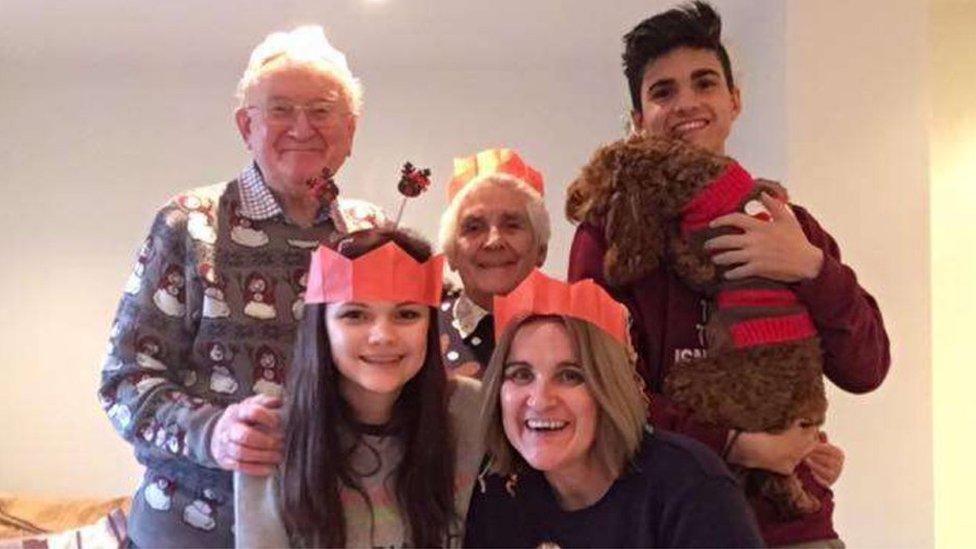Christmas calorie talk a 'trigger', anorexia campaigner says
- Published
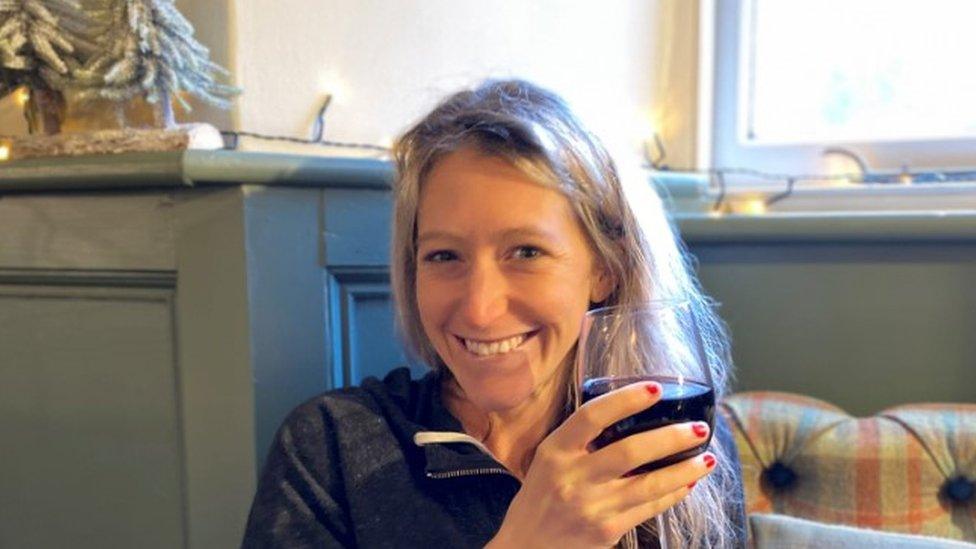
Hope Virgo says creating plans and making sure your loved ones avoid talking about diets helps
Christmas dinner is one of the "most terrifying" times of the year for people with eating disorders, a mental health campaigner has warned.
Hope Virgo, 30, from Bristol has lived with anorexia for 18 years.
Miss Virgo said: "There's this massive focus on food where people seem to spend four, five days eating as much as they can, over-indulging themselves."
She added the Covid Christmas "muddle" could add to anxiety levels so people needed to plan for every eventuality.
'Causing disruption'
UK eating disorders charity Beat has also published advice for Christmas, external.
Charity spokeswoman Rebecca Willgress said: "Unfortunately we just don't know what 2020 is going to do to us next so please try and think about what might happen if you aren't able to do what you were expecting."
Miss Virgo, an ambassador for Shaw Mind Foundation, said meeting people after not seeing them face-to-face after a long period of time adds to the pressure.
"People's weight will have fluctuated, whether you have an eating disorder or not," she said.
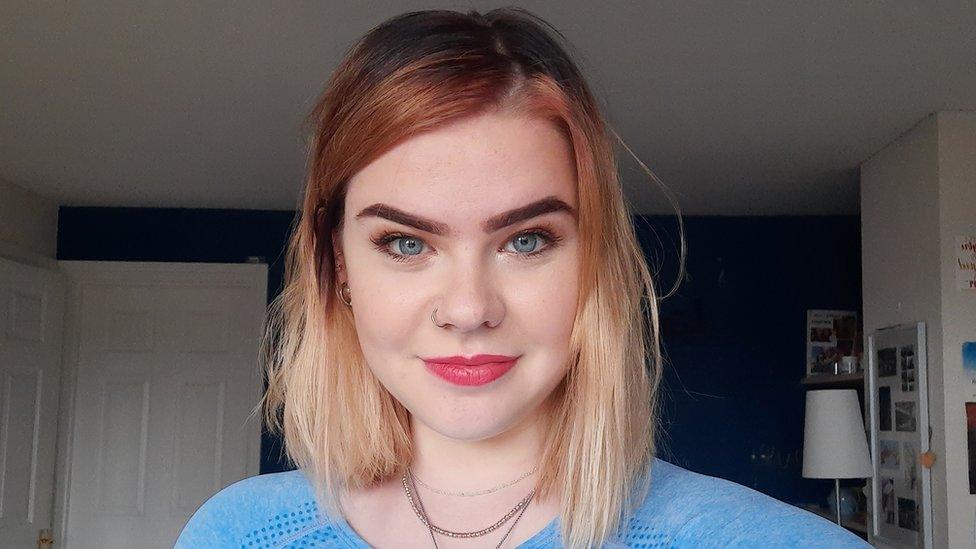
Anna Craig from Bristol developed anorexia two years ago
She added as "people have got out of practice of eating in front of other people" they were being "shoved" in together for one day "where you're dealing with your body and feelings of uncertainty".
Psychology student Anna Craig, 20, was diagnosed with anorexia two years ago.
She describes Christmas as an "anxious" time.
"I like things to be quite controlled and like to know the plan and like things to be very regulated and so the inconsistency of Christmas and the change in routine can be really difficult," she said.
"I think the build up to Christmas is so long now, that kind of triggers it from the beginning because of the anticipation of what's going to happen."
Both women say they would normally plan for Christmas around August but this has not been possible due to the pandemic.
Miss Virgo, who wrote Stand Tall Little Girl which details her struggle with the illness, was 12 when she first developed anorexia but kept it hidden for four years.
"I would find ways of causing disruption at the meal table or pretend I was eating something and not really having anything," she said.
"I was able to kind of get away with lying about it and being quite secretive.
"When I started my journey of recovery, Christmas got even harder because people were constantly watching what I was doing."
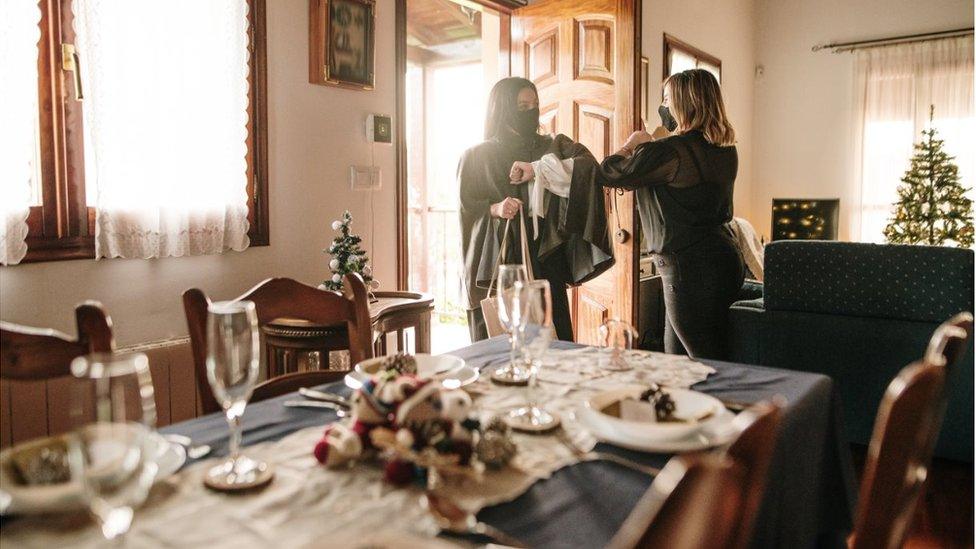
The changing Covid restrictions are adding to uncertainty levels for people with eating disorders
As a teenager she would sit with "uncomfortable feelings" made worse by typical conversations revolving around food, looks and weight loss.
"Everyone has that someone in the family who talks about dieting and says, 'as soon as Christmas is over I'm going to go on a diet, now I need to lose all this weight'.
"All of that conversation is really, really triggering."
In 2007 she was admitted to a mental health hospital for a year and remains in recovery.
Miss Craig and her family received therapy together which has made Christmas more manageable.
"My parents are very supportive and understanding and know how to deal with that area of things," she said.
"In previous Christmases, it involved talking to grandparents about how to react and what topics not to bring up so that's been helpful.
"Also they understand that I need to know the plan in advance in order to help me prepare for Christmas."
'Dangerous narrative'
One concern Miss Virgo wants to highlight is people with eating disorders using the pandemic as a "get out of jail card" - an excuse for not seeing loved ones.
She said they could see being alone on Christmas Day "as an excuse to go back to the eating disorder behaviour and restrict and punish themselves or to over-exercise on the day".
Post-Christmas can also be equally difficult with the "diet message", she added.
"People basically purge, they diet constantly, exercise constantly and it creates this dangerous narrative, but generally it is unhealthy in itself."
Anna, who is from Bristol, says her eating disorder originally started as a January diet.
"I think it is part of the reason why I find Christmas so difficult because it was around that time that I started to develop the eating disorder.
"It manifested itself as a kind of extreme control over my food and extreme focus on weight loss and that just kind of went down a rabbit hole of getting deeper and deeper into the eating disorder."
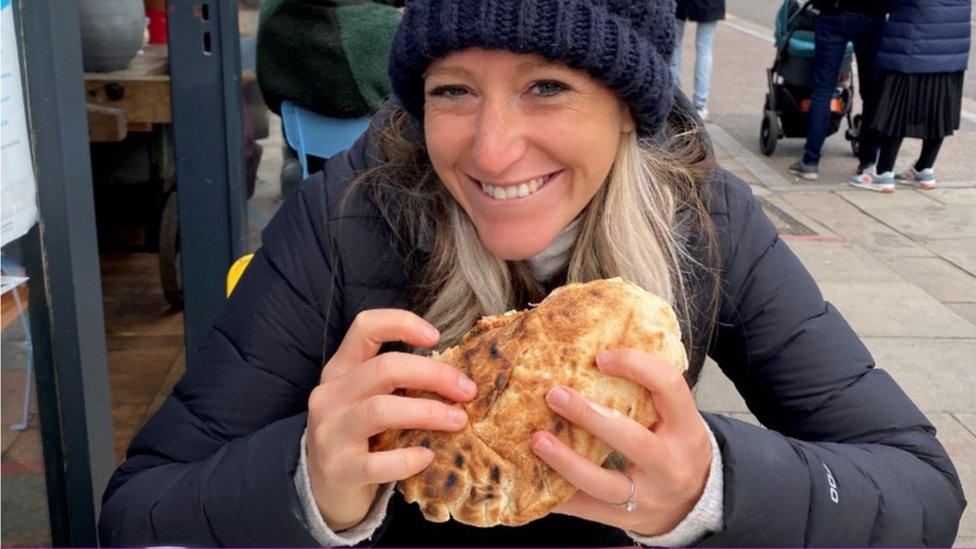
Hope has lived with anorexia since the age of 12 and is now in recovery
Since the March lockdown, Beat has seen a sharp rise in calls and emails for help.
Ms Willgress said: "It's really heartbreaking to see. We've had people getting in touch with us telling us they've relapsed during lockdown or their treatment has been delayed which has caused additional delays."
The charity said 7,420 people contacted them for help in November compared to 2,979 for the same month last year.
For Miss Virgo, checking in with loved ones is worthwhile.
"If you went home for Christmas and you had a terrible time and everything went really wrong - reassure that person that it's ok."
Hope Virgo's tips include:
Find your support
Be bold and own Christmas Day - plan your day
Distract yourself with fun activities
Remember it is one day and the feelings will pass - just hang on in there!
For everyone else:
Avoid saying comments such as "I earned this lunch, pudding, snack etc. because I dieted"
Avoid commenting on anyone's weight
Have a plan in place for the day which includes timings
Do not make last minute changes around food
BBC Action Line also has more details of organisations which can provide advice, information and support for people affected by eating disorders.

Follow BBC West on Facebook, external, Twitter, external and Instagram, external. Send your story ideas to: bristol@bbc.co.uk , external
Related topics
- Published13 November 2020
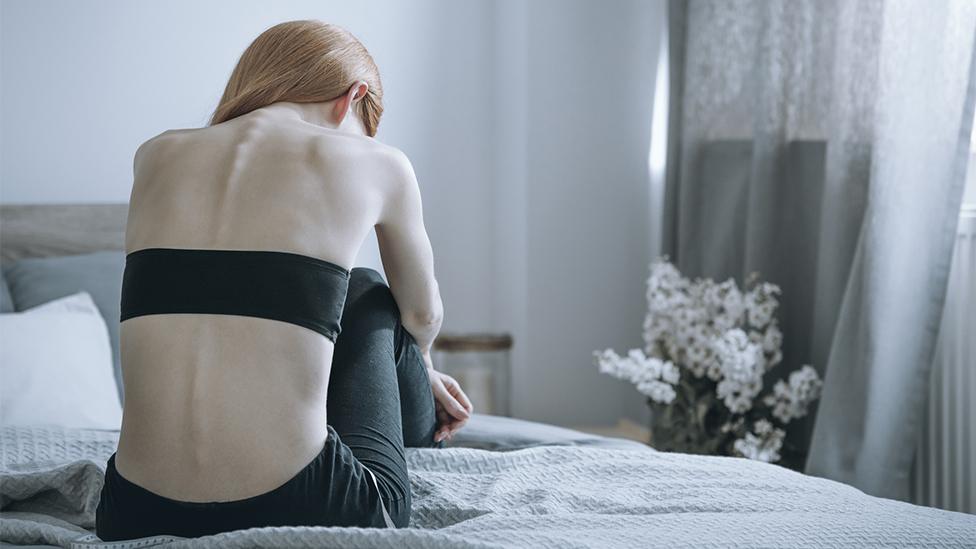
- Published3 September 2020

- Published14 June 2020
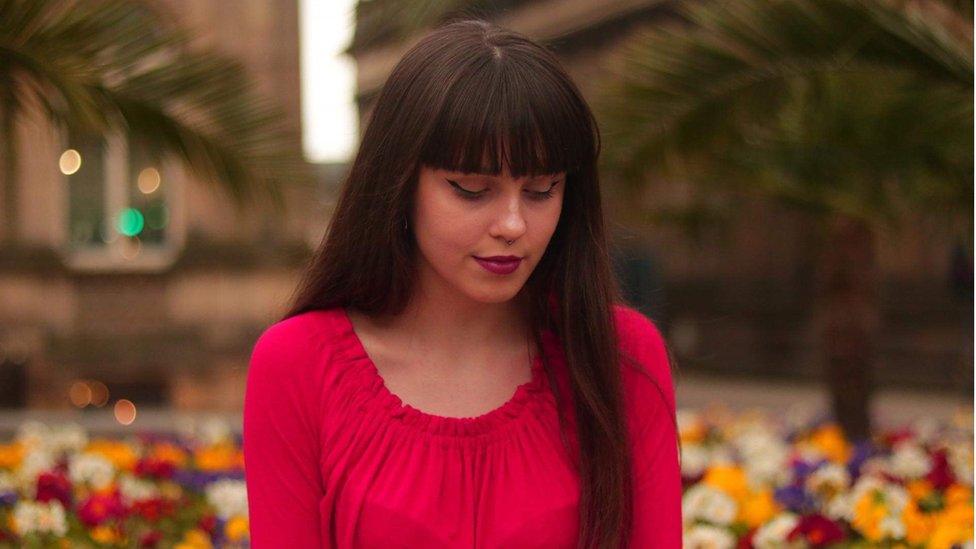
- Published21 December 2019
